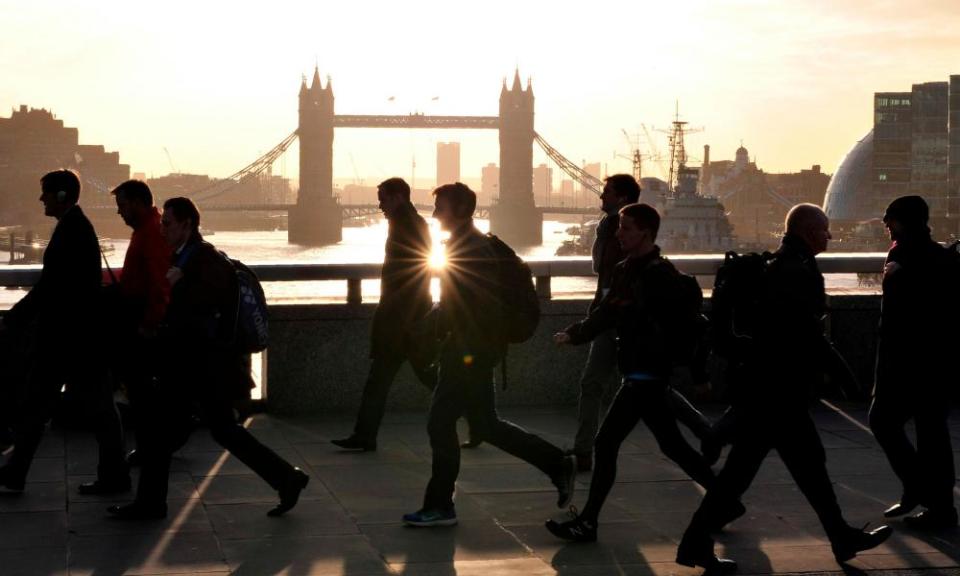UK wage growth slides to lowest rate in six months

The rate of pay growth for British workers has fallen to the lowest level in six months, despite record numbers of people in work across the country, official figures show.
Heaping renewed pressure on the Bank of England to delay raising interest rates from as early as August, the latest snapshot for the British labour market showed workers are still unable to demand higher pay despite the lowest unemployment levels since the mid-1970s. High rates of employment and low levels of unemployment usually signal rising wages.
The Office for National Statistics said average weekly earnings rose by 2.5% on the year in the three months to May, slowing down from the previous three months when they grew by 2.6%. Pay growth excluding bonuses also slowed by a similar amount to 2.7%.
There have been signs of recovery in the British economy that could tempt the Bank to raise interest rates from as early as next month to counter persistently high levels of inflation since the EU referendum two years ago. Having shuddered to a standstill during the freezing weather earlier this year, the economy rebounded in May thanks to warmer weather and the royal wedding. The Bank has previously said it would raise rates should the economy continue to improve.
The disappointing figures for pay growth came despite unemployment remaining at 4.2%, which was the joint lowest level since May 1975. While lower numbers of people out of work should help workers demand higher pay, some economists say the creation of low-paid and precarious jobs since the financial crisis has damaged the link between low levels of unemployment and wage growth.
The latest snapshot from the ONS also shows the British economy added a further 137,000 jobs, taking the number of people in work to a record high of 32.4 million.
Although real wages continue to grow, helped by falling inflation in recent months, the latest figures point to a “disappointing trend” for the British economy, according to Mike Jakeman, a senior economist at PwC. Economists are forecasting inflation will increase again in the coming months, fuelled by the rising cost of petrol.
The TUC general secretary, Frances O’Grady, said: “Wage growth has slowed again. Boosting pay packets should be a priority for the government, but ministers are failing to act.”

 Yahoo Finance
Yahoo Finance 